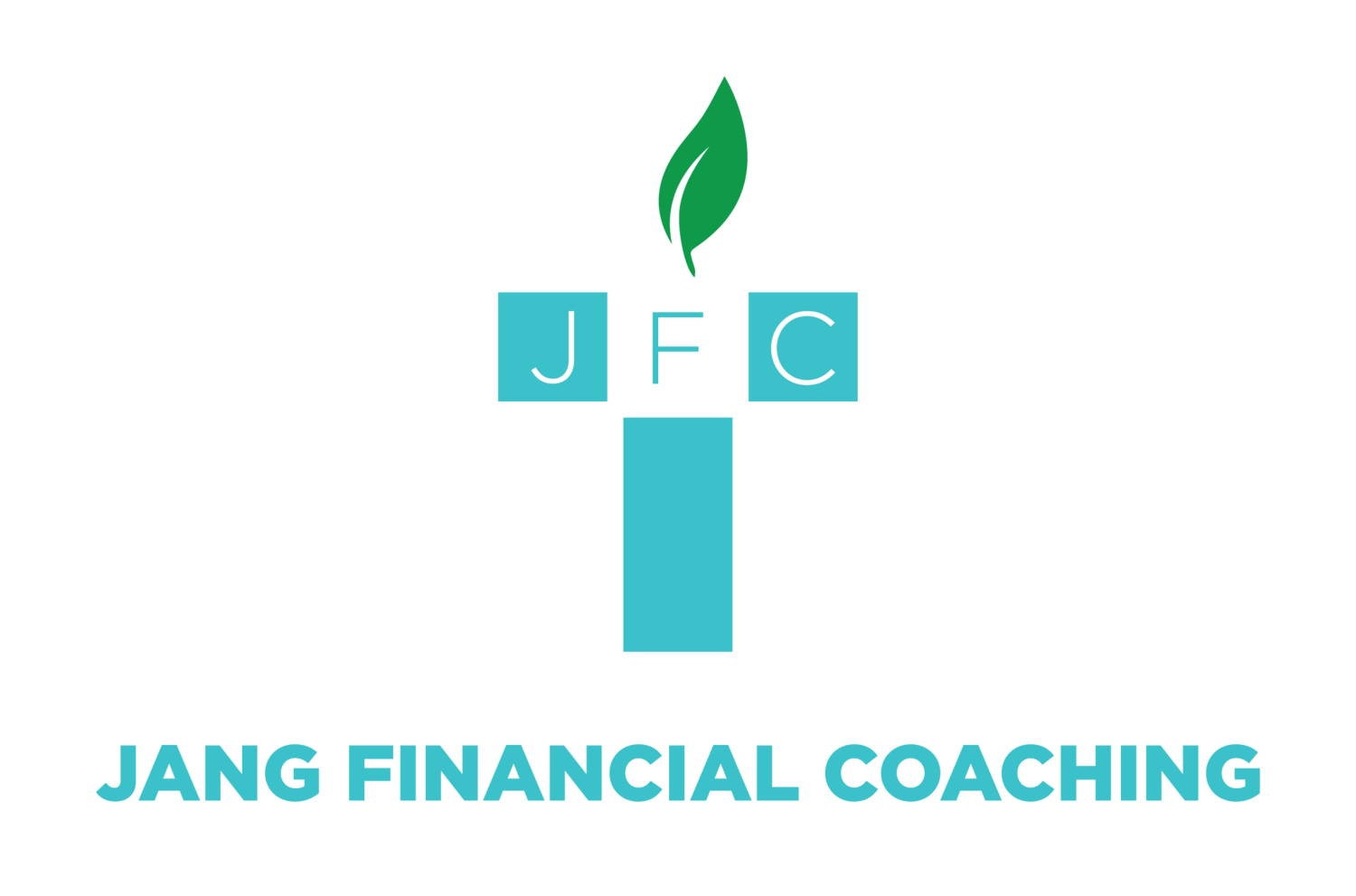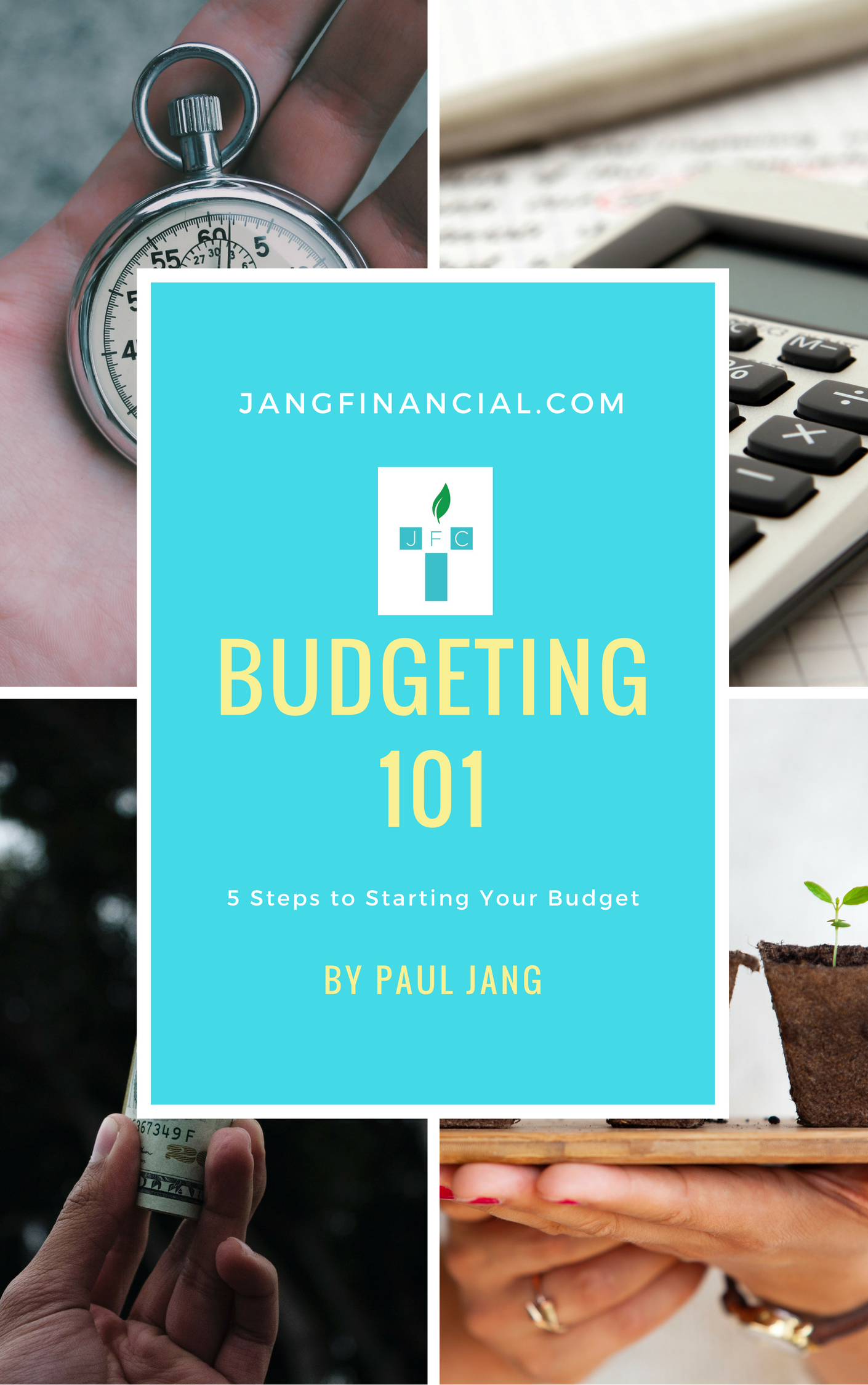How My Financial Illiteracy Cost Me $10K with Life Insurance
/My Life Insurance Mistake
I wrestled for about a year and a half before finally getting life insurance for my family in the fall of 2005. As the only income earner in my family of three, while expecting our second child, this was an important matter. After much prayer and reflection, my wife and I were able to make peace about getting life insurance for both of us. It wasn’t that we didn’t have to trust in God anymore but more that if anything were to happen to either one of us, while we would be grieving the loss and in pain, we wouldn’t have to deal with the financial component of our lives during such difficult ordeal.
So, what does a new father do to get life insurance to protect his family? Well, this new father sought out his high school friend in the life insurance business. A good friend. Let me be honest. I went in blind without doing any homework or learning about life insurance. I simply went to see my friend because I trusted him. He was a good guy and I trusted him. To be honest, I didn’t know the difference between term life insurance, whole life, universal life, or variable life insurance, and that is on me.
Without fully understanding what I was getting myself into, my friend convinced me to invest in a variable life insurance for the total death benefit of $500,000 for me, and $250,000 in term life for my wife. I paid $308.50 per month for the next 3.5 years, putting a total of $12,957. Let me be very clear. $308.50 per month at that time of my life was a significant percentage of our net income and this was a big sacrifice we were making.
My financial literacy journey started off around 2007 when I picked up copies of books written by people like Dave Ramsey, and eventually Larry Burkett and Howard Dayton, and I came to realize that I had not been very wise about my financial decision in general, and specifically with my life insurance decisions.
I had been paying $63.85 per month for the life insurance part of this variable life insurance with the annual cost of $756.96. Not only was $500,000 not enough of a coverage for my family, I was paying way too much for life insurance. Not only that, I was investing for my retirement in a vehicle that was charging me way too much. While variable life insurance products are not bad per se, it was not the best choice for me as the first step in my life insurance and retirement investment. If I had gotten term life insurance for the same amount, I would have paid about a quarter of what I was paying! If I had invested that difference (($756 x ¾)/12=$47.25) monthly for 30 years with 8% return, I would earn $70,888.95! That’s just on life insurance mistake alone. If I kept investing in this product, on life insurance cost alone, that would be over $70K worth of loss. When we consider losses, we must consider present value as well as future values.
I would have been better off getting term life insurance and investing the difference into a Roth IRA account, but I didn’t because I didn’t know better. I paid a total of $12,957 in the span of 3.5 years and at the end, I was able to only withdraw $2496.32. By the way, I discovered that if I were to die, I would lose all the cash value I had accumulated and only get the death benefit of $500,000! That’s a horrible return no matter how you look at it. Now I keep my term life insurance and retirement investment in a Roth IRA account separately.
Suitability vs. Fiduciary Role
If anyone is selling anything to you, you should know how they are getting compensated. You should ask that so you are clear. I know it’s uncomfortable to ask, but we all should ask and hear the answer.
I bought mine from a friend. I know people whose parent as a salesperson sold them something similar as they were getting married. I serve clients who have been sold or encouraged to put money into life insurance by relatives, perhaps with all the best intentions, without really understanding the cost they were paying.
Why do these “permanent” life insurance cost so much? Well, basically it’s because of the commission they pay out to the salesperson in the initial few years of the investment as well as the cost for the insurance company. Usually, larger and longer policies pay out more to the insurance agent.
When I was purchasing life insurance back in 2005, life insurance agents were required to adhere to a suitability standard when recommending specific products or advice.
A fiduciary is a higher level of accountability than the suitability standard for brokers, planners, and insurance agents. “Suitability” means that as long as an investment product or advice meets a client’s need and objective, it is deemed appropriate or suitable. However, under the fiduciary standard, the financial professional is legally obligated to put their client’s best interests first rather than simply providing a suitable choice.
Whether you are looking for an insurance agent or an investment broker, it would indeed be prudent to do the following before and during your interview process:
1) Study your financial product or service before investing financially. Read some good reliable blogs or news article to get started. Then read a book or two on the subject, or listen to a reliable podcast to learn more about the subject matter. Check out Investopedia.com as a starting point.
2) When you are interviewing an insurance agent or an investment broker, ask if they serve their clients as a fiduciary in every way, or if they adhere to a suitability standard.
3) Ask how they are compensated for selling you products or services. Whether is a percentage or a flat fee, or whatever else it is, they should be able to explain to you clearly and honestly how they are getting paid.
4) If you don’t understand the product you are asked to invest in, don’t do it. Only put your money into products and services you understand. And run away from pushy salespeople who don’t have a heart of a teacher.
What is your financial illiteracy costing you? Are you managing God’s resources well?
Ready to Start?
Are you ready to get started? Contact me at paul@jangfinancial.com if you want to help disciple your congregation as God-honoring stewards from a biblical perspective, or if you yourself want to grow as a steward seeking to practically manage the finances better to hear from our Lord upon his return, “Well done, good and faithful servant. You have been faithful over a little; I will set you over much. Enter into the joy of your master.” (Matthew 25:21, 23)
Questions to Ponder:
1. Do you understand what you have invested your money in? Do you know the fees you are paying and how does it align with your values and goals in life?
2. If you find yourself being afraid due to your financial illiteracy, what steps can you take now to get better? If you find yourself overly obsessed or controlling, how can you learn to rely on and trust more in the Lord and learn to be more generous toward the Kingdom and eternal things of God?
Paul Jang
Pastor | Personal Financial Coach to Individuals & Financial Stewardship Ministry Consultant for Churches
*If you want to automatically receive these weekly blogs, sign up for a free budgeting e-book at www.jangfinancial.com.
**Want to check out other blog entries, check out www.jangfinancial.com/jang-financial-stewardship-blogs/
Article on Money and Children
Secrets of Raising Money-Smart Kids
Articles on Financial-Emotional Types:
Do You Make This Mistake in Your Personal Finances?
How the Self-Worth Spender Within Me Stole 9 Months of My Life
Why Some People Always Medicate Themselves Through Retail Therapy
Confessions of a Recovering Security Seeker
What Is Your Financial Emotional Elephant Type?
Articles on Budgeting and Debt-Elimination
A Steward’s Guide to Starting a Budget
A Steward’s Guide to Starting a Budget Part 2: Tracking Expenses by Category
A Steward’s Guide to Starting a Budget Part 3: Fixed, Variable and Lifestyle Choices
Secrets of Knocking Out Your Debts
Articles on Car Buying
A Steward’s Guide to Car Buying: Part 1
A Steward’s Guide to Car Buying Part 2: 4 Things You Must Be Able to Do When Buying a Good Used Car
A Steward’s Guide to Car Buying Part 3: Doing the Math
Articles on Retirement
A Steward’s Guide to Retiring with Dignity: Part 1
A Steward’s Guide to Retiring With Dignity Part 2: Basic Steps



